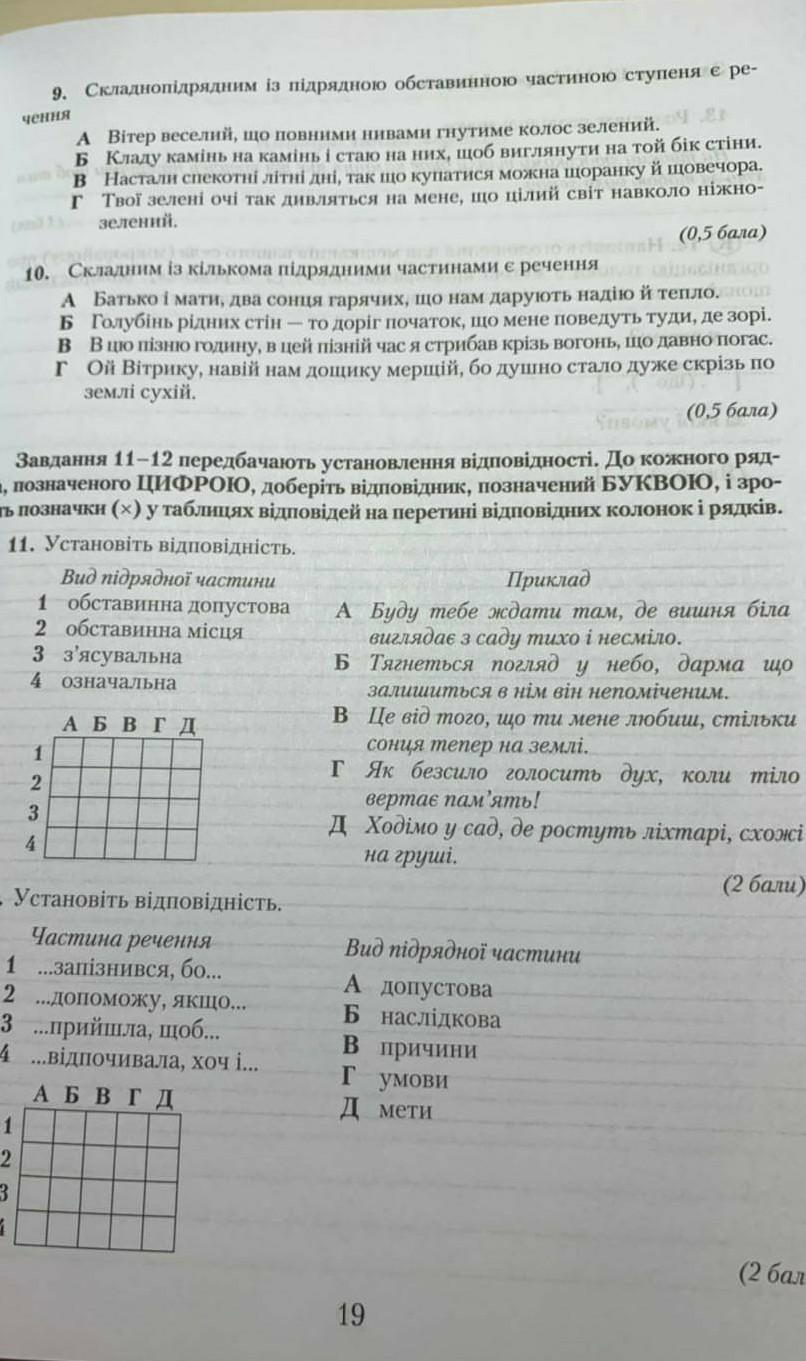Предмет: Українська мова,
автор: marat0105
срочно!! складнопідрядні речення
Приложения:

Ответы
Автор ответа:
0
Ответ:
9.г?
10.б
11. 1б 2а 3в 4д
12. 1в 2г 3д 4а
Похожие вопросы
Предмет: Математика,
автор: Аноним
Предмет: Физика,
автор: mkeleberda07
Предмет: Математика,
автор: Mr1rat
Предмет: Математика,
автор: Скарлет3331
Предмет: Химия,
автор: 881881881